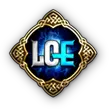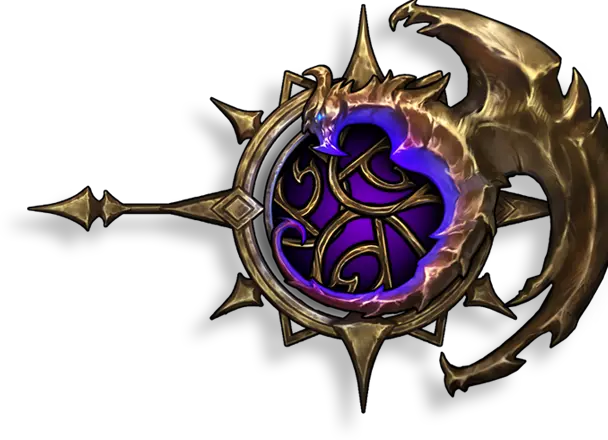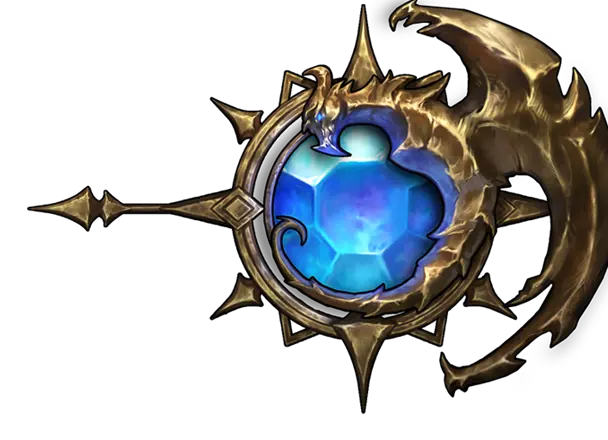Legends of Elysium vs Pokémon
Pokémon TCG: An In-Depth Analysis
Tactic in Pokémon TCG
The tactical gameplay in Pokémon TCG revolves around swift decision-making during matches. Players must balance energy attachment, Pokémon evolution, and the use of Trainer cards to create advantageous board states.
Key Tactical Features:
- Energy Management: Players must carefully attach energy cards to their Pokémon, deciding which Pokémon to empower and when to retreat or attack.
- Status Effects: Tactical use of status effects such as Poison, Burn, and Paralysis can disable opponents’ Pokémon and hinder their strategies.
- Bench Management: Deciding which Pokémon to place on the bench and when to switch active Pokémon is crucial to maintaining a strong board presence.
Strategy in Pokémon TCG
Strategic depth in Pokémon TCG lies in deck construction and long-term planning. Players must anticipate opponents’ moves and adapt their playstyle accordingly.
Key Strategic Elements:
- Deck Building: Players construct 60-card decks, balancing Pokémon, Energy, and Trainer cards to achieve synergy and consistency.
- Evolution Chains: Building effective evolution chains is essential for unlocking stronger attacks and abilities.
- Prize Cards: The strategic use of resources to claim six Prize Cards before the opponent can win the match is a defining objective.
Collectible Aspect in Pokémon TCG
The collectible nature of Pokémon TCG is one of its most compelling features. The allure of acquiring rare cards and completing sets fuels player engagement.
Key Collectible Features:
- Holofoil and Ultra Rare Cards: Special cards with unique artwork and effects are highly sought after by collectors.
- Expansions and Sets: New expansions regularly introduce fresh cards, keeping the collectible aspect dynamic.
- Promotional Cards: Exclusive promo cards from events or special packs enhance the appeal for collectors.
Trading Aspects in Pokémon TCG
Trading is a core element of Pokémon TCG, fostering community interaction and enhancing the game’s ecosystem.
Key Trading Features:
- Card Marketplaces: Both online and physical marketplaces allow players to buy, sell, and trade cards to complete their collections or improve decks.
- In-Person Trades: Local tournaments and events encourage face-to-face trading, building community bonds.
- Digital Trading: The Pokémon TCG Online platform offers digital trading, providing a modern twist to the traditional trading experience.
Gameplay Mechanics in Pokémon TCG
The gameplay mechanics of Pokémon TCG combine simplicity with depth, making it accessible to beginners while offering strategic depth for veterans.
Unique Gameplay Mechanics:
- Energy Cards: Players must attach energy cards to Pokémon to activate attacks, introducing resource management.
- Prize Card System: Defeating an opponent’s Pokémon allows players to draw a Prize Card, with six required to win the match.
- Trainer Cards: These cards provide powerful one-time effects that can shift the balance of the game.
What Sets Pokémon TCG Apart
- Iconic Franchise: Pokémon TCG draws from one of the world’s most beloved franchises, providing instant recognition and emotional connection.
- Community and Events: Regular tournaments, both local and global, create a vibrant community of players and collectors.
- Multi-Generational Appeal: With its long history, Pokémon TCG appeals to both nostalgic adults and new generations of players.
- Digital Integration: The Pokémon TCG Online offers a digital platform to play and trade, keeping the game relevant in the modern gaming era.
In conclusion, Pokémon TCG offers a rich blend of tactics, strategy, and collectibility, making it a timeless classic that continues to evolve and captivate players worldwide.
Legends of Elysium compared to Pokémon TCG – Gameplay Mechanics
Both Legends of Elysium (LoE) and Pokémon TCG integrate classic card game elements, but their core gameplay mechanics stand apart due to LoE’s innovative fusion of card-based strategy with board game tactics. In Pokémon TCG, battles revolve around managing Pokémon, energy cards, and Trainer cards, adhering to straightforward rules where players aim to draw Prize Cards by defeating opponents’ Pokémon. In contrast, LoE takes the genre further by introducing a hexagonal game board that players must actively manipulate, creating an evolving battlefield. Here, players engage in terraforming, altering lands to match their card requirements, bringing a spatial dimension to every decision. This board control element adds a layer of complexity unseen in traditional TCGs like Pokémon, making LoE a more dynamic and tactical experience.
Furthermore, while Pokémon TCG relies heavily on deck building and hand management, LoE requires players to think about positioning and area control, turning every game into a blend of strategic planning and immediate adaptation. By merging card synergy with spatial mechanics, Legends of Elysium transforms typical turn-based combat into a battle of wits, where resource management and battlefield manipulation are key to victory.
Legends of Elysium like Pokémon TCG – Similarities
While Legends of Elysium (LoE) introduces innovative mechanics through its hexagonal board and terrain manipulation, it still shares many familiar aspects with traditional TCGs like Pokémon TCG, ensuring accessibility for seasoned card game enthusiasts. At their core, both games revolve around deck-building mastery, where players strategically assemble a combination of cards to achieve victory. Each game requires careful management of resources, with Pokémon TCG utilising energy cards to power attacks, while LoE players manage mana and terrain to unleash powerful spells and summon creatures.
Both titles emphasise card rarity and collectibility, with a classification system that distinguishes Common, Rare, and Legendary cards, each offering varying levels of power and exclusivity. In both games, players must balance offensive and defensive tactics, whether deploying powerful Pokémon or strategically positioning units on LoE’s battlefield. Additionally, the turn-based combat structure ensures thoughtful decision-making in each round, as players must anticipate their opponent’s moves while leveraging special abilities and status effects to gain the upper hand.
Lastly, both games foster a vibrant community spirit through competitive play and trading. Pokémon TCG encourages face-to-face trades and tournament participation, while LoE’s blockchain-based marketplace allows players to buy, sell, or craft digital assets, creating a modern and evolving ecosystem that mirrors the social aspects of traditional trading card games.
Legends of Elysium vs Pokémon TCG – Key Differences
While both Legends of Elysium (LoE) and Pokémon TCG captivate players with card battles and strategic deck-building, LoE introduces a distinct layer of complexity with its hex-based board gameplay and terrain control mechanics. Unlike Pokémon TCG, where battles are primarily determined by managing Pokémon and energy cards, LoE requires players to actively reshape the battlefield, terraforming hex tiles to unlock specific card abilities and gain tactical advantages. This dynamic board interaction shifts the focus from hand management alone to spatial strategy, making every turn a test of foresight and adaptability.
Another defining difference lies in LoE’s hero system. Players choose heroes with unique abilities that influence deck strategies and resource management. This contrasts with Pokémon TCG’s static gameplay structure, where the deck alone dictates the outcome. LoE’s heroes act as a personalised extension of the player’s strategy, allowing deeper customisation and more diverse playstyles.
Moreover, LoE’s integration of blockchain technology enables true asset ownership, allowing players to buy, trade, and stake cards as digital assets. In contrast, Pokémon TCG focuses on traditional trading mechanics without integrating digital asset management. This innovation positions LoE as a forward-thinking game, merging playability with real-world value through tokenised rewards and marketplace interactions, giving players a tangible return on their time and skill.
Tactic and Strategy in Legends of Elysium
In Legends of Elysium (LoE), victory belongs to those who balance tactical precision with long-term strategic foresight. Each match is more than just a test of deck strength; it’s a battle of positioning, resource management, and adaptability. Tactically, players must control the hexagonal game board, carefully choosing which lands to terraform and which units to deploy. Decisions about whether to push for offensive dominance or fortify key positions directly impact the flow of the game. Every card played and every hex conquered holds immediate consequences, forcing players to think several moves ahead.
Strategically, LoE rewards players who build cohesive decks tailored to their chosen hero’s abilities. Unlike traditional TCGs, where deck building is often confined to card synergies alone, LoE integrates land control and hero powers into the equation, adding an extra layer of depth. Heroes influence the game’s tempo and dictate optimal strategies—some might favour aggressive unit deployment, while others thrive on control tactics that manipulate terrain and disrupt opponents.
The true brilliance of LoE lies in its dynamic adaptation. Players must constantly assess both short-term threats and long-term goals. Do you seize control of key hexes for immediate bonuses or save resources for a late-game push? The hex-based battlefield forces leaders to adapt their plans on the fly, reacting to evolving threats while keeping their overarching strategy intact. It’s a battlefield where clever positioning, efficient resource use, and foresight can turn the tide of any conflict, making every decision critical to shaping the world of Elysium.
Legends of Elysium as Alternative to Pokémon TCG
For those seeking a fresh adventure beyond the familiar realms of Pokémon TCG, Legends of Elysium (LoE) offers a compelling alternative that fuses traditional TCG mechanics with modern innovation. While Pokémon TCG captivates players with its iconic characters and straightforward gameplay, LoE challenges players to master a more dynamic and immersive experience. The game introduces a hex-based board, where players must control terrain, manage resources, and strategically position their units to outmanoeuvre opponents. This adds an exciting layer of tactical depth that goes beyond the static card battles of Pokémon TCG.
What truly sets LoE apart is its emphasis on hero customisation and long-term strategy. Unlike Pokémon TCG, where the focus is primarily on card synergy, LoE empowers players to select heroes that influence gameplay styles, adding an element of personalisation to every match. Furthermore, LoE’s integration of blockchain technology allows players to own, trade, and earn assets in a secure digital marketplace—offering a tangible value for time and skill, something Pokémon TCG does not provide.
For seasoned Pokémon TCG players looking for a deeper challenge, LoE delivers with its unique blend of strategy, collectibility, and innovation. It respects the foundations of traditional card games while introducing groundbreaking mechanics that test tactical foresight and creativity. Legends of Elysium is not just another TCG—it’s an evolving, story-rich universe that offers players true ownership, a chance to shape their destiny, and endless opportunities to test their mettle on the battlefield.
Conclusion
The battlefield of Legends of Elysium (LoE) awaits those who dare to challenge their minds and test their tactical mastery. With its intricate blend of deck-building, hero customisation, and hex-based terrain control, LoE offers a richer, more immersive experience than traditional card games like Pokémon TCG. It’s a world where every decision reshapes the future, and every hero’s journey is woven into the grand tapestry of Elysium’s lore.
For strategists and adventurers alike, LoE provides the ultimate arena to prove your mettle. Dive into a universe filled with ancient magic, powerful artefacts, and legendary heroes, where the fate of kingdoms rests in your hands. This is more than a game—it’s a living, breathing world that evolves with every battle and every victory.
Step into Elysium, claim your hero’s legacy, and rise as a champion in a realm that rewards those who think ahead and act boldly. The path of greatness is open—will you seize the opportunity and etch your name into the chronicles of LoE? The legend is yours to write.
Comparison Table: Legends of Elysium vs Pokémon TCG
| Feature | Legends of Elysium (LoE) | Pokémon TCG |
|---|---|---|
| Gameplay Mechanics | Hex-based board control, terrain manipulation, hero powers, tactical movement | Card battles with static board, energy attachment, Pokémon evolution, and status effects |
| Strategy and Depth | Focus on deck-building, resource management, hero customisation, and spatial tactics | Deck-building and prize card system with an emphasis on energy management and evolution chains |
| Collectibility | Includes both digital and phygital assets with NFT integration, rarity tiers (Common to Legendary) | Physical cards with holofoil, ultra-rare cards, and promotional sets |
| Trading and Marketplace | Blockchain-based trading, true ownership, digital marketplace for buying/selling cards | Traditional card trading at events or marketplaces, limited digital trading via online platform |
| Tactical Elements | Board positioning, unit movement, land control, hero abilities, multi-path victory conditions | Bench management, energy allocation, Pokémon status effects, prize card system |
| Immersive Elements | Rich fantasy lore, customisable heroes, evolving game world, adaptive AI | Iconic franchise, multi-generational appeal, established characters |
| Player Appeal | For hardcore strategists, tacticians, and players interested in true digital ownership | For collectors, casual players, and fans of the Pokémon franchise |







